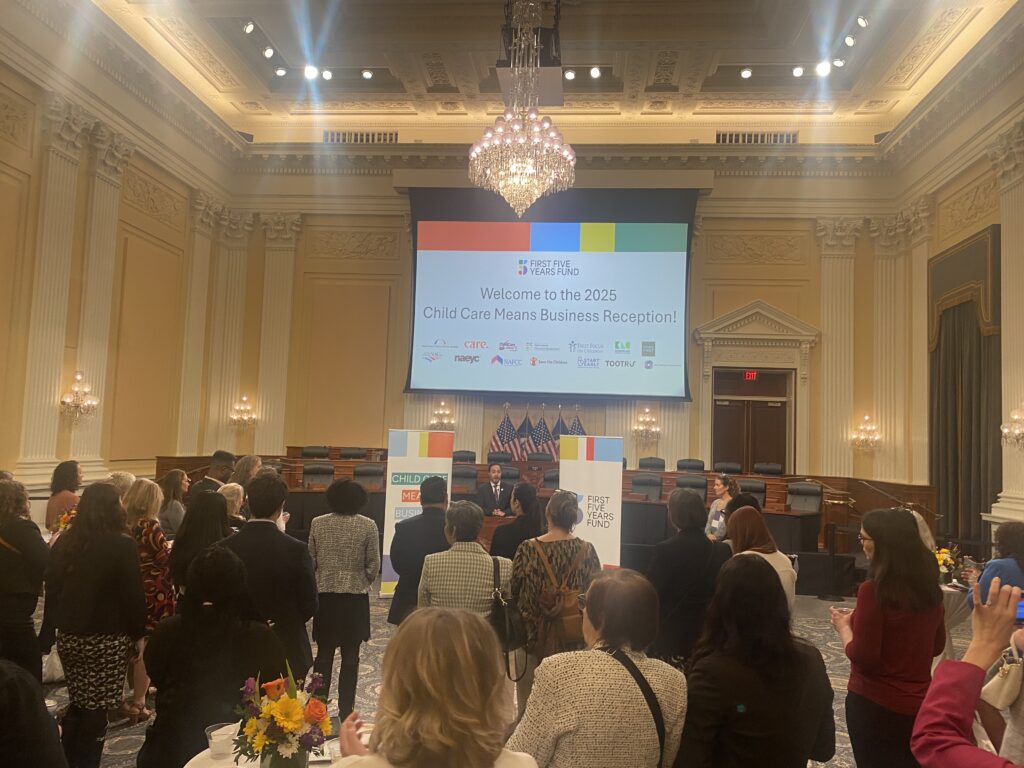Child Care This National Small Business Week

This Small Business Week, there’s one surprising issue that’s keeping small business owners from thriving: child care challenges. A number of recent polls from employers and employees have found that having access to affordable quality child care is key to smoothly running a successful business – and a lack of affordable and available options is hurting employees and employers.
Commenting on National Small Business Week, FFYF Executive Director Sarah Rittling said:
“Child care may not be the first thing most people think of when they think about running a small business. But in reality, child care challenges can be devastating for employers. Employees with small children need reliable, affordable care and the peace of mind it brings to know their little ones can learn and grow in a safe environment. Making sure more working families have access to child care they can afford will take a variety of approaches, including strong funding for federal programs and updates to tax provisions that help businesses and families. We look forward to working with lawmakers across the aisle to make this a reality.”
Recent studies have found:
- In a recent Care.com survey of small business owners and employees:
- Child care outranked mental health support, health and fitness discounts, commuter benefits and a range of other perks. [Care.com]
- Employers in the study said “child care benefits have a positive impact on talent recruitment (81%), retention (80%), and productivity (82%).”
- Over half (56%) of employers say they are prioritizing child care benefits to recruit and retain staff, up ten percent from 2023.
- When asked what job benefits they lack that could entice them to switch jobs, “20% of respondents said child care benefits, including 27% of Gen Z and 25% of Millennials.”
- In a poll from Small Business Majority:
- More than two-thirds (68%) of small business owners believe that policymakers need to take action to address the cost of child care.
- 71% support doubling the amount of money that can be saved by a family in a tax-exempt Dependent Care Flexible Spending Account to cover child care expenses, up to $10,000 annually.
- And in a poll from FFYF
- 74% of small business owners overwhelmingly support the federal government taking action on child care
- 80% who support a federal proposal to expand funding to states to increase child care options.
- 30% of small business owners said expanding and growing their businesses has been made more challenging.
The bottom line: Child care challenges are business challenges. There are bipartisan legislative actions that Congress can take to help ease challenges for employers and families. Read more about them here.
Subscribe to FFYF First Look
Every morning, FFYF reports on the latest child care & early learning news from across the country. Subscribe and take 5 minutes to know what's happening in early childhood education.



